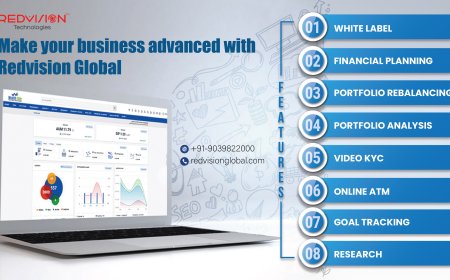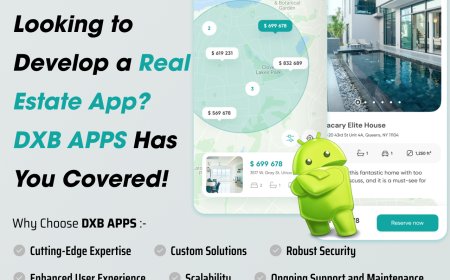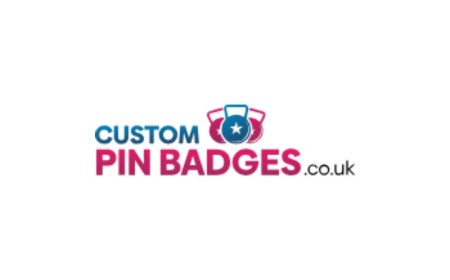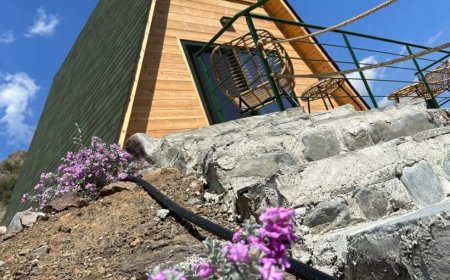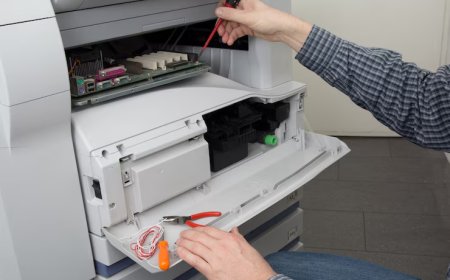How to Pitch at Columbus Washington Startup Week
How to Pitch at Columbus Washington Startup Week Columbus Washington Startup Week is more than just a gathering of entrepreneurs, investors, and innovators—it’s a high-stakes platform where ideas are tested, connections are forged, and funding opportunities are born. Held annually in the heart of Washington’s thriving tech corridor, this event draws founders from across the Pacific Northwest and b
How to Pitch at Columbus Washington Startup Week
Columbus Washington Startup Week is more than just a gathering of entrepreneurs, investors, and innovators—it’s a high-stakes platform where ideas are tested, connections are forged, and funding opportunities are born. Held annually in the heart of Washington’s thriving tech corridor, this event draws founders from across the Pacific Northwest and beyond who are ready to present their ventures to a curated audience of angel investors, venture capitalists, accelerators, and industry leaders. But presenting at Startup Week isn’t just about sharing your business idea—it’s about crafting a compelling, concise, and confident narrative that captures attention, builds credibility, and compels action.
Many founders underestimate the power of a well-structured pitch. They assume that a great product or service will speak for itself. But in a room filled with dozens of equally talented entrepreneurs, the difference between being remembered and being forgotten often comes down to how effectively you communicate your vision. Whether you’re pitching on stage in front of 200 people or in a 1:1 meeting during networking sessions, your ability to articulate your business’s value, market opportunity, traction, and team will determine your success.
This guide is your comprehensive roadmap to mastering the art of pitching at Columbus Washington Startup Week. We’ll walk you through every step—from preparation and structure to delivery and follow-up—using proven strategies, real-world examples, and practical tools used by top-performing founders. By the end of this tutorial, you’ll not only know how to pitch—you’ll know how to stand out.
Step-by-Step Guide
1. Understand the Audience
Before you write a single word of your pitch, you must know who you’re speaking to. Columbus Washington Startup Week attracts a diverse mix of attendees: early-stage angel investors, corporate innovation officers, serial entrepreneurs, incubator directors, and even potential customers. Each group has different priorities.
Angel investors care about return on investment, market size, scalability, and founder resilience. Venture capitalists look for product-market fit, unit economics, and defensibility. Corporate partners seek strategic alignment and integration potential. Incubators evaluate team chemistry and execution capability.
To tailor your message, research the event’s sponsor list, panelists, and past pitch winners. Visit the official Columbus Washington Startup Week website and review the profiles of attending investors on LinkedIn. Identify who’s most likely to be interested in your industry—whether it’s SaaS, agritech, clean energy, or health tech—and adjust your language accordingly.
For example, if you’re pitching a B2B SaaS platform for small farm logistics, emphasize cost savings and operational efficiency for corporate partners, but highlight ROI and scalability for investors.
2. Define Your Core Message
Your pitch must have one central idea that sticks. This is your “elevator hook”—a single sentence that answers: “What do you do, and why does it matter?”
Too many founders lead with features: “We built an AI-powered app that automates inventory tracking.” That’s not compelling. Instead, lead with impact: “We help small farms reduce food waste by 40% through real-time logistics optimization—saving them $28,000 annually per operation.”
Use the “Problem-Solution-Impact” framework:
- Problem: What pain point are you solving? Be specific. “Small farms lose 25–40% of their harvest due to inefficient transportation and lack of real-time demand data.”
- Solution: How does your product fix it? “Our platform connects farmers directly with regional distributors using AI-driven routing and dynamic pricing.”
- Impact: What’s the measurable outcome? “Customers reduce spoilage by 42%, increase revenue by 18%, and cut logistics costs by 31%.”
Keep your core message under 15 words. If someone can’t repeat it after hearing it once, you haven’t crystallized it enough.
3. Structure Your Pitch for Maximum Impact
Most successful pitches at Startup Week follow a 7-slide or 60-second structure. Even if you’re given five minutes, stick to this framework—it’s proven to hold attention and drive decisions.
Slide 1: The Hook (10 seconds)
Start with a bold statistic, a relatable story, or a provocative question. “Did you know that 30% of fresh produce in rural Washington goes to waste before it ever reaches a market?”
Slide 2: The Problem (20 seconds)
Expand on the pain point. Use data, anecdotes, or visuals. Avoid jargon. Make it visceral. “Farmers drive hours to market, only to find prices dropped overnight. No one tells them what’s in demand until it’s too late.”
Slide 3: The Solution (30 seconds)
Introduce your product or service simply. Show a screenshot, prototype, or diagram. “We built FarmLink—a mobile platform that matches farmers with buyers in real time using predictive demand analytics.”
Slide 4: Market Opportunity (20 seconds)
Quantify your TAM (Total Addressable Market), SAM (Serviceable Available Market), and SOM (Serviceable Obtainable Market). “There are 12,000 small farms in Washington. We’re targeting 500 in Year 1—$15M in potential transaction volume.”
Slide 5: Traction (30 seconds)
Show proof. “We’ve piloted with 27 farms across Yakima and Walla Walla. Average user saves 11 hours/week and increases net income by $2,100/month.” Include logos, testimonials, or growth graphs.
Slide 6: Business Model (20 seconds)
How do you make money? “Freemium app for farmers. Subscription fee of $49/month for distributors. 70% gross margin.”
Slide 7: The Ask (15 seconds)
Be specific. “We’re raising a $500K pre-seed round to scale our AI engine and hire two engineers. We’re offering 10% equity.”
Practice this structure until you can deliver it in 90 seconds without notes. Then refine it for 60 seconds. Then for 30.
4. Craft a Compelling Story
Data persuades, but stories connect. The most memorable pitches at Startup Week aren’t the ones with the most slides—they’re the ones that make people feel something.
Tell the story of why you started this company. Was it a personal experience? A moment of frustration? A conversation with a farmer in Eastern Washington who said, “I wish someone would just tell me who’s buying apples this week”? That’s your emotional anchor.
Use the “Hero’s Journey” structure:
- The Ordinary World: “I grew up on my family’s apple orchard in Wenatchee.”
- The Call to Adventure: “One year, we lost $18,000 because no one bought our fruit.”
- The Mentor: “I talked to a logistics expert who showed me how data could change everything.”
- The Transformation: “Now, we’re helping 27 farms avoid the same fate.”
Stories humanize your brand. They make investors remember you—not just your product.
5. Design Your Visuals
Slides are not your script. They’re visual support. Avoid walls of text. Use high-quality images, minimal bullet points, and bold typography.
Best practices:
- One idea per slide.
- Font size: minimum 24pt.
- Use your brand colors consistently.
- Include a photo of your team or customers—it builds trust.
- Never read from your slides. They’re cues for you, not scripts for the audience.
Tools like Canva, Figma, or Pitch.com offer templates optimized for startup pitches. Use them. Avoid PowerPoint’s default themes.
6. Rehearse Ruthlessly
Rehearsal is non-negotiable. Record yourself. Watch it back. Do it in front of a mirror. Practice in front of friends who know nothing about your industry—can they explain your business after you’re done?
Time every run-through. Aim for 4:30 minutes max for a formal pitch. If you’re doing a 1:1 meeting, keep it under 3 minutes.
Focus on pacing. Speak slowly. Pause after key points. Breathe. Nervous speakers rush. Confident speakers own the silence.
Practice answering the toughest questions: “Why haven’t bigger players done this?” “What’s your moat?” “What if your tech fails?”
7. Prepare for Q&A
Investors don’t just listen—they interrogate. Anticipate objections.
Common questions at Columbus Washington Startup Week:
- “How are you different from [competitor]?”
- “What’s your customer acquisition cost?”
- “Why now?”
- “What’s your exit strategy?”
- “How much have you spent so far?”
Prepare clear, concise answers backed by data. If you don’t know, say: “That’s a great question—we’re still validating that. Here’s how we plan to find out.”
Never argue. Never dismiss. Always pivot to evidence or opportunity.
8. Master Non-Verbal Communication
Body language speaks louder than words.
- Stand tall. Shoulders back. No crossed arms.
- Make eye contact with different people in the room—not just the person in the front row.
- Use open hand gestures to emphasize points.
- Don’t pace. Don’t fidget. Don’t say “um” or “like.”
- Smile when appropriate. Confidence is contagious.
Practice in front of a camera. Watch your facial expressions. Are you conveying passion—or anxiety?
9. Bring the Right Materials
Even if you’re not handing out physical decks, bring:
- A one-page PDF summary (email it after your pitch).
- A QR code linking to your demo or website.
- A business card with your name, title, email, and one-line tagline.
- A printed version of your pitch deck (in case tech fails).
Pro tip: Name your PDF file clearly: “FarmLink_PitchDeck_ColumbusStartupWeek2024.pdf”
10. Follow Up Strategically
Pitching doesn’t end when you step offstage. The real work begins after.
Within 24 hours, send a personalized email to every investor or contact you spoke with. Reference something specific from your conversation:
“Hi Sarah, thanks for your feedback on our distribution model. You mentioned the importance of unit economics—here’s our latest CAC/LTV analysis we didn’t have time to share. We’d love to schedule a 15-minute call next week.”
Use LinkedIn to connect with a short note: “Great connecting at Startup Week. Your insights on rural tech adoption were spot-on.”
Track your follow-ups in a simple spreadsheet: Contact, Date, Notes, Next Step.
Don’t be pushy. Be persistent and polite.
Best Practices
Be Authentic, Not Polished
Investors back people, not presentations. They can smell rehearsed inauthenticity. Don’t try to sound like a Silicon Valley VC. Speak like yourself. If you’re passionate about sustainable agriculture, let that show. If you’re a first-time founder, own it. “I’m learning fast, and I’ve surrounded myself with advisors who’ve done this before.”
Focus on Traction, Not Ideas
Everyone has ideas. Few have proof. Even a small pilot with real users is more valuable than a 50-slide market analysis. Show revenue. Show engagement. Show testimonials. Show growth.
Know Your Numbers Cold
Be ready to defend every metric. If you say “we’re growing 20% MoM,” be prepared to explain how you measure it. If you say “our gross margin is 70%,” know your COGS breakdown. Investors will dig. Be ready.
Don’t Oversell
Overpromising is the fastest way to lose credibility. Saying “we’ll dominate the $50B market” raises red flags. Saying “we’re targeting $15M in transaction volume in Washington over the next 18 months” sounds credible.
Be Concise
Time is the most valuable currency at Startup Week. Respect it. If you’re given 5 minutes, use 4:30. Leave room for questions. If you’re given 10 minutes, don’t fill it all. Silence is powerful.
Engage the Room
Ask rhetorical questions. “How many of you have seen a farmer drive 40 miles to sell produce, only to find the price dropped?” Make eye contact. Invite participation. Make it a conversation, not a lecture.
Know When to Pivot
If you notice people checking their phones or looking confused, pause. Ask: “Does this make sense?” Adjust your pace or example. Flexibility shows emotional intelligence.
Network Before, During, and After
Your pitch is one moment. The relationships you build are the real opportunity. Attend all networking sessions. Ask thoughtful questions. Listen more than you talk. Follow up. The right connection could lead to an intro, an investment, or a partnership.
Stay Calm Under Pressure
Things will go wrong. Your mic might cut out. Your slide might freeze. Your timer might be off. Breathe. Smile. Say, “Let me reset,” and keep going. How you handle adversity matters more than perfection.
Know the Rules
Each year, Columbus Washington Startup Week has specific pitch guidelines: time limits, format, slide restrictions. Read them. Follow them. Violating rules can disqualify you—even if your pitch is brilliant.
Tools and Resources
Pitch Deck Templates
- Canva Startup Pitch Deck Templates – Free, professional, customizable.
- Pitch.com – Interactive pitch decks with analytics on how investors interact with your content.
- Beautiful.ai – AI-powered design that auto-adjusts layouts for clarity.
- Google Slides + Startup Grind Template – Simple, clean, and free.
Rehearsal Tools
- OBS Studio – Free screen and audio recorder to film your practice runs.
- Grammarly – Polishes your script for clarity and tone.
- Timer Apps (Time Timer, Toggl) – Practice within strict time limits.
Data and Market Research
- Statista – Reliable industry stats for market sizing.
- U.S. Census Business Explorer – Free data on small business density in Washington counties.
- Crunchbase – Research competitors and investor activity in your space.
- Google Trends – Validate demand for your product category in the Pacific Northwest.
Networking Platforms
- LinkedIn – Research attendees before the event. Send personalized connection requests.
- Eventbrite or Cvent App – Use the official event app to schedule 1:1 meetings.
- Notion – Create a simple CRM to track contacts, follow-ups, and next steps.
Free Educational Resources
- Y Combinator’s “How to Pitch” Video – 12-minute masterclass on clarity and structure.
- Startup Grind’s Pitch Workshop Series – Free webinars with Pacific Northwest founders.
- Washington Small Business Development Center (SBDC) – Offers free pitch coaching to local founders.
- Seattle Startup Podcast – Listen to real pitches from past events.
Local Support Organizations
- Columbus Innovation Alliance – Hosts pre-Startup Week pitch clinics.
- Washington Technology Industry Association (WTIA) – Connects founders with investors.
- Central Washington University Entrepreneurship Center – Offers mentorship and rehearsal space.
Real Examples
Example 1: FarmLink – Agritech Startup
Founders: Maria Chen and James Rivera, both former agricultural logistics analysts.
Pitch Hook: “Every year, Washington farmers lose $180 million in spoiled produce—not because of weather, but because they don’t know who’s buying.”
Problem: Farmers rely on outdated phone networks and brokers who take 30% margins. They’re disconnected from regional demand.
Solution: FarmLink is a mobile app that uses AI to predict demand based on weather, restaurant orders, and historical sales. Farmers list inventory; buyers bid in real time.
Traction: 27 pilot farms. 92% retention rate. Average user increased monthly income by $2,100. Partnered with two regional co-ops.
Ask: “We’re raising $500K to build our AI engine and hire two engineers. We’ve already secured $100K in grants from the WA State Department of Agriculture.”
Outcome: Secured a $300K pre-seed round from a local angel group and an incubator spot with WTIA. Featured in the Spokane Spokesman-Review.
Example 2: EcoCharge – EV Charging for Rural Communities
Founders: Derek Lin and Priya Mehta, former energy consultants.
Pitch Hook: “Electric vehicles are coming to rural Washington—but there are no chargers. And the ones that exist are broken.”
Problem: 68% of rural Washington counties have zero public EV chargers. Existing chargers have 40% downtime due to poor maintenance.
Solution: EcoCharge installs solar-powered, self-maintaining EV stations at gas stations and convenience stores. Revenue share model with property owners.
Traction: 5 pilot units installed. 98% uptime. 300+ users/month. Signed MOUs with 12 local businesses.
Ask: “We’re seeking $750K to scale to 25 stations in Year 1. We’ve already secured a $200K grant from the Clean Energy Fund.”
Outcome: Received a $500K investment from a regional impact fund and was invited to present at the Northwest Clean Energy Summit.
Example 3: TutorLoop – AI Tutoring for K-12 Students
Founders: Aisha Johnson, former teacher in Pasco.
Pitch Hook: “In Washington’s rural schools, 1 in 3 students struggle with math—but there’s only 1 tutor for every 120 kids.”
Problem: Chronic teacher shortages. No access to personalized tutoring after school.
Solution: TutorLoop is an AI-powered app that adapts to each student’s learning pace. Teachers assign lessons; parents get progress reports. No internet? Works offline.
Traction: Piloted in 3 school districts. 85% of students improved test scores. 91% parent satisfaction.
Ask: “We’re seeking $400K to license our platform to 10 more districts. We’re already in talks with the WA State Office of Superintendent of Public Instruction.”
Outcome: Won the “Best Social Impact Pitch” award. Partnered with a nonprofit to distribute tablets to low-income families.
FAQs
How long should my pitch be?
Most formal pitches at Columbus Washington Startup Week are 5 minutes, followed by 3–5 minutes of Q&A. However, many networking opportunities are 1–3 minutes. Always prepare a 30-second, 60-second, and 5-minute version.
Do I need to have revenue to pitch?
No. Many successful founders pitched at Startup Week with only a prototype or pilot. But traction—whether it’s user growth, letters of intent, or pilot partnerships—is far more persuasive than a great idea alone.
What if I’m not tech-savvy?
Startup Week welcomes all industries: food, agriculture, education, healthcare, manufacturing. Your industry doesn’t matter as much as your clarity, passion, and ability to solve a real problem.
Should I wear a suit?
Dress professionally but comfortably. Most founders wear business casual: collared shirt, blazer, or neat dress. Avoid jeans and hoodies. First impressions count.
Can I pitch if I’m not based in Washington?
Yes. Many participants are from Oregon, Idaho, or even out of state. The event is open to all. But emphasize why Washington is your target market.
What if I get nervous on stage?
It’s normal. Breathe. Pause. Remember: the audience wants you to succeed. They’re rooting for you. Practice in front of friends. Record yourself. The more you do it, the easier it gets.
How do I get selected to pitch on stage?
Submit your application early through the official Columbus Washington Startup Week website. Selection is based on originality, market potential, team strength, and clarity of vision. Applications typically open 8–10 weeks before the event.
What if I don’t get funding?
Many founders don’t raise money at Startup Week—but they gain mentors, partners, and customers. Treat it as a learning experience. Ask for feedback. Follow up. Keep iterating.
Can I pitch a nonprofit or social enterprise?
Absolutely. Social impact pitches are highly valued. Emphasize measurable outcomes, sustainability, and scalability.
Is there a fee to pitch?
There is no fee to apply or pitch. However, attendance to the full event may require a ticket. Check the official website for pricing and scholarship options.
Conclusion
Pitching at Columbus Washington Startup Week is not about perfection. It’s about presence. It’s about clarity. It’s about connecting your passion to a real need—and showing that you’re the one who can solve it.
By following the steps outlined in this guide—from understanding your audience to crafting a story that resonates, from rehearsing relentlessly to following up with purpose—you’re not just preparing a pitch. You’re building a foundation for your company’s future.
The most successful founders aren’t always the ones with the biggest ideas. They’re the ones who communicate them with courage, authenticity, and precision. They’re the ones who show up, listen, adapt, and keep going—even when the lights are bright and the room is full.
Columbus Washington Startup Week is your stage. The world is watching. Now go make them remember you.















